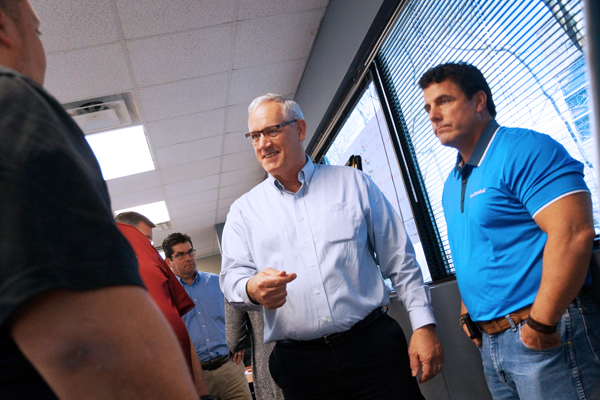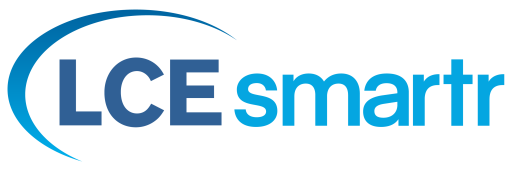Life Cycle Institute Designs Training to Fit Clients’ Business Objectives
Training is not a one-size-fits-all activity. True learning is not an activity at all – it’s a process.

Before participating in learning events, Life Cycle Institute helps organizations understand that all participants should have a thorough understanding of what they are expected to learn, how their behavior is expected to change, the results they are expected to achieve, and how these results contribute to the overall goals of the organization. In addition to helping organizations identify what training is appropriate, the Institute guides managers and individuals in selecting the right training mode and environment that best suits their needs.
As an example, Life Cycle Institute has tailored its flagship Reliability Excellence for Managers course to best meet a company’s business objectives. Reliability Excellence for Managers (RxM) is the original reliability program designed to build competency through multiple classroom learning sessions and practical application over a year. Throughout the course, students learn how to customize and apply the tools and processes required to develop, implement and sustain world-class reliability-based performance and a culture of continuous improvement.
RxM has been available as a public, open-enrollment class for more than 10 years. There are many benefits of attending public training, like networking with industry professionals and building external relationships. But, for some companies, private classes offer the best training solution.
Benefits of Private Classes
Private classes provide several valuable benefits to training and education delivery. A private class allows an organization to assemble leaders in the same room, providing ample internal networking and team-building opportunities. This is especially beneficial when team members work at different sites and don’t have many chances to build critical relationships.
Because Life Cycle Institute workshops are highly interactive, groups can learn from each other and share real-life “war stories” that can be used to support a co-worker – even if they work at different sites. The post-class networking is also an added value because the students can strategize over a drink (and when they get back to the facilities as well.)
The curriculum is also tailored to provide relevant, meaningful internal examples (metrics, production examples, KPIs, etc.) to use during the training. When the facilitator integrates practical examples into the classroom delivery, students can easily draw the correlation between the classroom examples and how they would apply these best practices to real-life scenarios. With this method, the learning delivery is more relevant to the participants and contributes to an engaged classroom.
A private class also optimizes the overall expenses associated with the training deliveries. If an organization has five or more students who would benefit from the education, it is considered cost-justified for a private, on-site class instead of budgeting for registrations and travel expenses in the Institute’s public-enrollment training.
Private Classes Were the Best Match for These Companies
A well-known aluminum corporation sought these numerous advantages when they chose to partner with Life Cycle Institute for private RxM training. The Life Cycle Institute team delivered the RxM classes at the client’s site, resulting in significant cost savings for the organization, compared to sending their team to the open-enrollment, public education classes.
A global packaging company wanted the benefits of a private class, but also wanted the advantages of being away from the company site. They chose to do private training at the world-class Institute facility located in Charleston, South Carolina. Off-site, private classes ensure learners are protected from the distractions that often pull them out of the classroom when on their own site (i.e., meetings, emergency work, etc.) As a result, the classroom is full of engaged, active learners surrounded by team members who want each other to succeed.
Facilitators, not Instructors, are the Key to Success
Learning experiences produce results by changing behavior. Behavior-changing learning experiences are led by experienced, passionate professionals who know the content and how people learn. At Life Cycle Institute, class leaders are called facilitators. This acknowledges that in addition to being experienced authorities on their topic, they have a passion for teaching and have developed this passion into a set of learning facilitation skills.
These private RxM classes were facilitated by one of Life Cycle Engineering’s principal consultants. Students from these two companies provided enthusiastic feedback about their facilitator:
- “He does an excellent job as a facilitator. Uses real-life examples to demonstrate principles, keeps the material light and moving forward, draws out class participation very well.”
- “He had a great way of giving a new perspective to older ideas to make me see a different point of view.”
- “He is very knowledgeable, and you can tell he’s faced a lot of the same situations that we face.”
Helping Clients Meet Business Objectives
While RxM is not a CMRP prep course, many of the more than 150 participants who have taken an LCE-proctored CMRP exam cite this program as contributing to their success. The standard CMRP pass rate is 60%, but the pass rate for the participants from the aluminum corporation was 80%.
Feedback from both company’s participants illustrates how the RxM course can impact performance. Here’s what students had to say about the private RxM training:
- “Course was great! A lot of information and useful tools to help drive reliability.”
- “Felt I learned a lot that will benefit my plant. I like that the course encompasses all aspects of plant reliability. There is much to draw from to make improvements at my plant.”
- “Course material was very informative. Exercises and activities drove point home, while keeping class engaged.”
- “This course really drills in the best approach to Reliability Excellence.”
- “Very good class. I am starting to think about how I approach problems/ projects at my plant, and this course will help me do a better job planning and executing these projects.”
Helping clients improve performance is fundamental to Life Cycle Institute’s mission. Each client has unique goals and strategies to reach them, and the Institute has the capability to expertly tailor education and training needs to support the client in meeting their business objectives.















